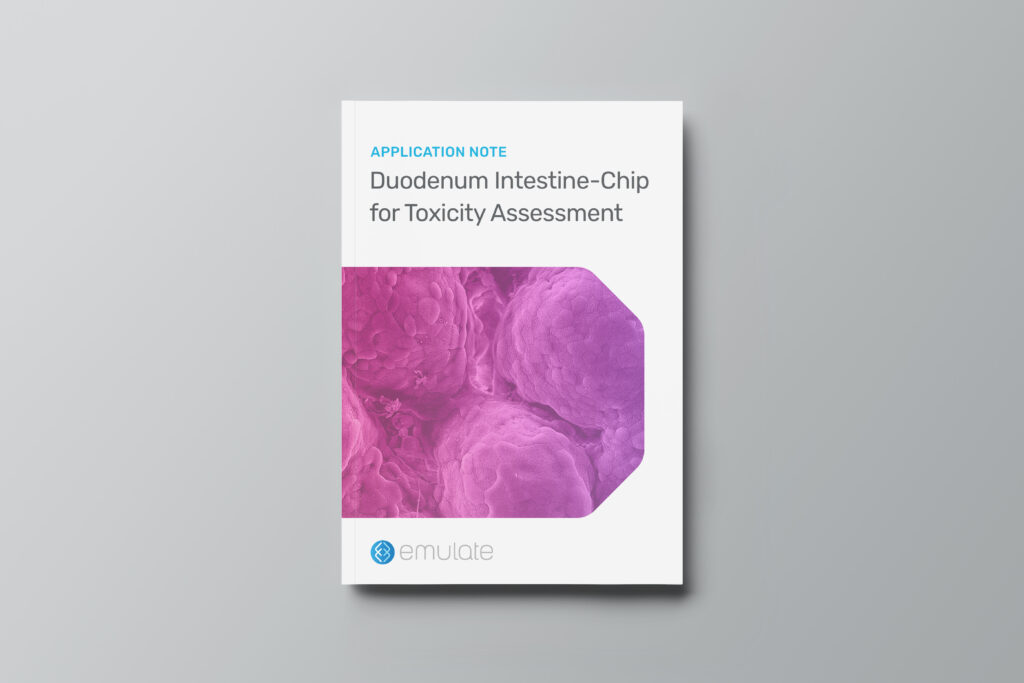Overview
Gastrointestinal toxicity is one of the most common clinical side effects caused by therapeutics and other xenobiotics. Accurately predicting the risk of intestinal toxicity during preclinical drug development could help improve quality of drug treatments and reduce unwanted side effects in the clinic.
In this application note, we review how our Duodenum Intestine-Chip was applied to assess the toxicity of indomethacin—a known GI toxicant.
Key Highlights:
- Co-culture model incorporates organoid-derived primary epithelial cells and primary human small intestinal microvascular endothelial cells (siHIMECs).
- The Duodenum Intestine-Chip emulates intestinal tissue and recreates in vivo-like physiology for use in assessment of drug safety.
- Indomethacin safety assessed across multiple endpoints, including I-FABP accumulation, LDH release, morphology, and barrier function.
- Future potential applications include assessment of drug absorption and drug-drug interactions, as well as donor-to-donor variability patient-derived cells.

